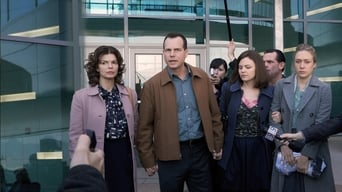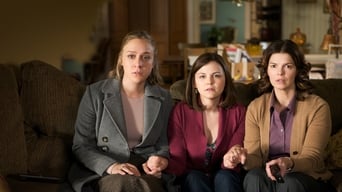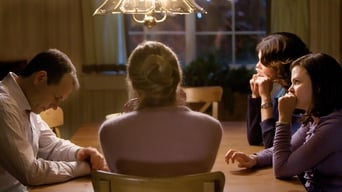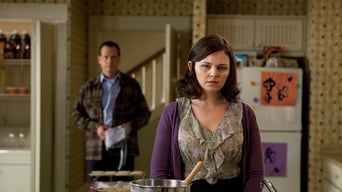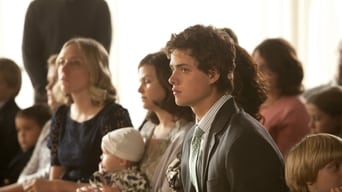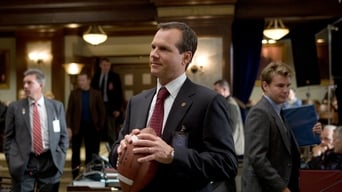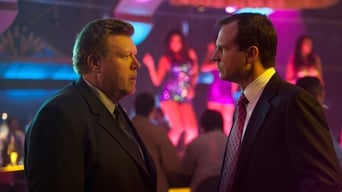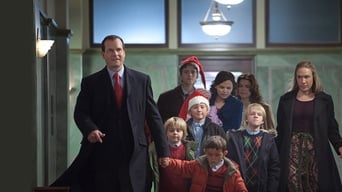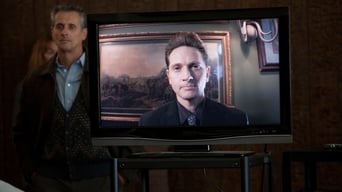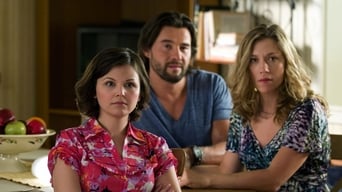s k
This show suffers from the most fundamental flaw imaginable -- not a single main character is worth caring about. Why? Because their flaws range from pure evil to raging arrogance, lying, lust, greed, jealousy, pettiness, delusional thinking, hypocrisy, and sheer, utter stupidity. I'm not kidding. These characters lack even the most basic fundamental human qualities. The men are misogynist, and the women are portrayed in a variety of negative lights -- take your pick.There are two main groups. The first group consists of a suburbanite polygamous husband and his 3 wives and 7 children who are self-styled adherents to an outlawed variation of Mormonism called Fundamental Latter Day Saint (FLDS), many of whom have broken away from "the compound", an even more extreme version/full-on polygamous community which constitutes the second group.The head of the FLDS household is Bill, a former member of the compound who was exiled when he was 14 years old (supposedly a common practice to eliminate younger males, leaving more teenage female brides for the older pedophile leader types). He's the "American Dream" come true. He's built up a prosperous home improvement business in the Utah suburbs, where he lives with his three wives (Barb, Nicki, and Margene) and 7 children. (NOTE: Bill's solution to the impotence that is confounding his ability to have continual sex with his 3 wives (they have a schedule) is: Viagra.)To make a long story short, his first wife Barb is a cancer survivor. They have 3 children. While Barb was going through cancer treatment Bill had a "revelation" that he was supposed to start practicing "The Principle" (the doctrine that some select men are told by G-d that they should take on more wives in a holy mission to get to heaven). So he married Nicki, the daughter of Roman Grant, the self-proclaimed prophet and leader of the compound group, and she bore him two children. Then later on Bill met Margene, a young waitress with whom he fathered two children.In the process of attempting to expand his one home improvement store, Bill finagles a way to eliminate the 15% due his father-in-law, Roman Grant. (Since Roman fronted Bill the money for the first store for an agreed-upon 15% of the profits, he (Roman) believes he is legally entitled to 15% of the profits from the second store as well. Bill disagrees. Thus begins "The Dysfunctional Family Feud" in earnest.) Tangentially, since polygamy is illegal, everyone in the suburban clan lies -- to neighbors, co-workers, classmates, etc. As indicated above, all the business dealings are sketchy at best, and situational ethics is putting it mildly when it comes to how this group lives their lives.As far as the compound group goes...one nut case runs around poisoning those she dislikes. Another nut case (Bill's father) goes around peeing in the sink instead of the bathroom. Bill's mother and Bill's father are at odds and can't be in the same room together. And on...and on...and on.If there are people in this world who are more lost than these miscreants, I'd sure hate to meet them. They seem to have NO IDEA what they are doing, or why. They claim to be spiritual, yet they constantly obsess about money, each other, and their rivals/enemies. There isn't a single healthy relationship in the bunch -- especially at the compound. (That place is such a total mess it's impossible to even get into it here. One lurid example: Roman Grant can "reassign" any woman/wife to another man whenever he feels like it.) Everyone is constantly lying to one another and cheating on each other and basically just making a total mess out of their lives and the lives of their children.In short...if you have a lot of patience for stupid, shallow, pompous hypocrites who have no insight into their own behaviors and/or motivations, then this is the show for you. Otherwise, do yourselves a Big Favor and pass on Big Love. The acting is amateurish (Ginnifer Goodwin really SHOULD quit her day job; she's a train wreck in everything she's ever done. And Bill Paxton isn't much better. Heck...even Chloe Sevigny, who I like a lot, is totally wasted here.) The dialogs range from witty and funny to just plain ridiculous. And the story lines are all over the place. The first season was kind of interesting. After that it really went off the rails.
Spoon-5
I am a lifelong, practicing member of the Church of Jesus Christ of Latter-day Saints. I served a LDS Mission and was married in the Salt Lake Temple. I lived in Utah from my infancy until I moved to the East Coast at age 27. The Church is absolutely integral to who I am. I love being a member and I try (with varying success) to follow its precepts.After finishing the series, I was struck by the difference between how most people describe practicing members of the LDS Church (happy, friendly, hard-working, self-sufficient); and how they are portrayed here. I counted twenty characters in the show who are (or were) clearly LDS, and who had a sufficient role in the series to form an opinion on their character, and it's not positive: Naïve (Heather), Nosy (Pam), Disillusioned (Scott), Homicidal (Carl), Intolerant (Cindi), Clintonian (Ray), Calculating (Sen. Dwyer), Blackmailing (Ted), Pedophilic (Greg), Vindictive (Wendy), Ostracizing (Nancy), Suicidal (Dale), Puritanical (Bishop Devery), Arrogant (Michael Sainte), Conniving (State Rep. Roy Colburn), Incompetent (Salty), Compromising (Emma Smith), Tyrannical (Stake President Kennedy), and Pushy (LDS Missionary Companionship).Does the above accurately portray a representative sample of LDS members? Not really. Further, the LDS Church as an organization is consistently portrayed in the show as sinister and all-powerful. In one episode, Cara Lynn is scolded for walking home by herself because of the fear that a Church member would inflict physical harm. Nicki then refers to a letter regarding polygamy read in LDS Church Meetings as a "fatwa." How nice. Little LDS digs like this abound throughout the series.Olsen and Scheffer spent three years researching for the show before its creation. Given how unfavorably LDS members are portrayed, I often wondered if they had a specific grievance against the Church. I was unable to find any evidence of that, so my theory is simply that their intention was to create an entertaining television show; rather than an accurate picture of how real people in these situations would act and interact. As such, where reality and juicy storytelling conflict, they favor storytelling.I hesitate to comment on other reviews of the show, but I was somewhat surprised at two common threads in the other reviews: (1) the number of reviews submitted in 2006 when the show was still in its infancy, and (2) the number of reviews that mentioned the quality of the writing. This made me wonder what people consider "good writing." Is it "good" if it's interesting? Or compelling? Or complex? Or funny? "Good" by itself seems to be just specific enough to persuade people to watch, but just vague enough that it doesn't really have to mean anything at all.I could list numerous inaccuracies portrayed as given truths in the series (major ones have been submitted as goofs on each episode's page), but suffice it to say that I was not particularly impressed by the writing. It may be because I was watching episodes of a weekly television show in rapid succession; but it seemed like the characters fell in and out of each other's favor with breakneck frequency. Nicky accrues tens of thousands in credit card debt? No problem—wait an episode or two and it will blow over. Alby attempts to kill his mother with a pipe bomb at a motel? Don't worry—she'll soon publicly protest his incarceration (for a different crime). Ben has premarital sex and wants to hold the Aaronic Priesthood? Sure—we'll give him a pass. Frank and Lois try to kill each other? No sweat—they'll make up soon. Dozens of story lines like this—major, harrowing life events—seem to resolve themselves effortlessly with no further mention or consequences. Additionally, I was mildly disappointed on several occasions when the writers seemed to go out of their way to dredge up old anti-Mormon canards such as Blood Atonement, Danites, and the number, age, and marital status of Joseph Smith's wives. Three years of research didn't necessarily seem to shine through in the show—unless, perhaps, the three years was spent researching anti-Mormon material.The series also explores the use of the word "Mormon" itself. Many people use it synonymously with "LDS." Others use it for ANY organization or belief that accepts Joseph Smith as a prophet. Under this definition, the FLDS Church, the Community of Christ, the LDS Church, and numerous other smaller groups could accurately be called "Mormon." I'm not advocating the correctness of any one definition, but I urge viewers of the show to keep in mind that "Mormon" doesn't always mean what people assume it means.Some of the show's reviews asked why someone would ever practice plural marriage. While I don't (/wouldn't want to) practice it, it all boils down to a question of putting faith into action. When you commit to follow God's commandments no matter what, and when you believe that God still speaks through a prophet as he did in former times, the logical progression of this syllogism (for us) is that you do what the prophet says, even if it is inconvenient, or expensive, or tiring, or (in extremely rare cases) illegal. THAT is the logic behind the practice of plural marriage. Clearly, it can (and does) get twisted by some who prey on the faithful, but that was never the purpose. Similarly, if you can you think of something you value in your life above upholding the law, something that you consider moral and necessary that you would do even if it were illegal, you can now begin to understand their mentality.Believe it or not, my main purpose here is NOT to steer anyone away from the show. I heartily enjoyed the series. It's extremely entertaining. I would simply request of anyone who watches, however, to please remember that this is fiction, and that the majority of what you see is a heavily distorted caricature of deeply held beliefs and sincere people who are trying to follow Jesus Christ and help their fellow man.
tobydale
It may be an indicator of my and my wives "Age & Stage" - but we have become hooked on Big Love! In the UK we managed to catch Season 1 some years ago - may have been on E4 or some channel like that. We found it intriguing, odd, quirky, believable, fun. Most things from HBO are worth the watch and this delivered as a soap with an edge. But then it got discountinued. Boo Hoo.Years passed and then we got Sky and were delighted to see it on Sky Atlantic. Joy! So we have now re-watched Season 1, added Season 2 and are now half way through Season 3.The backdrop is a fictional fundamentalist Mormom sub-sect in Utah. In the centre is the interplay between Bill and his 3 wives who have a fully functioning polygamus family complete with children. The wives are distinctive and edgy, each very different one form the other. In Season 1 we see the chemistry of this set up. All the way through into Season 3 we see extensive development of this family and it's good stuff. Even has spicy bedroom scenes! Surrounding this central text is a dangerous power struggle within the sect which develops into a main "soap" theme.All of the characters are damaged to a lesser or greater extent by their contact with the sect and in some cases with each other. The subject of polygamus marriage, forced marriage, under-age relations and the ramifications are never far away. Some characters are manipulative or can dip into manipulation as it suits them or their agendas, making trust difficult, even within the family unit. Others are downright twisted malevolent and dangerous. Because we get a feel for the characters, we sense not only the threats - but how they might react even though the situations are fairly well outside what would be considered to be "our normal frames of reference". Bill - the husband appears as the most normal of the lot of them, but even he has huge baggage. He is a very good TV creation for so many reasons.Without trying to say too much more (impossible for a multi-seasoned soap in any event), and without trying to be too patronising - Big Love is probably for the viewer who is over 30, 40 even, who is in or has been in a long term relationship, possibly with children. There are strong insights into why people stay together, why people fight, about power influence and control - sexual and otherwise. Religion, surprisingly, is not a strong feature.I commend Big Love - but it may not be for everyone; it's complex, deals with characters in situations that are on the verge of unbelievable. But it IS believable. The script writers and researchers have done clever work with this. It's worth following just to see how the subject is handled.Well done HBO - we're hooked!
mcsheehey
"Big Love" begins as a gripping exploration of a family that attempts to walk the tightrope between polygamy and normalcy. Bill Paxton stars as Bill Henrickson, a straitlaced family man with three wives: Barb (Jeanne Tripplehorn), Marge (Ginnifer Goodwin), and Nicolette (Chloe Sevigny).Season 1 allows the audience to step inside the Henrickson homes (there are three, right next to one another). We see Bill struggle to please all three wives as he faces problems at work. We see Barb struggle to rise to her duty as "First Wife." We see Marge struggle to find her place in the family. We see Nikki struggle to cling to her conservative roots. At the same time, the show hints at doubts and serious questions concerning Sara and Ben, Barb's children. Season 1 works as a compelling dysfunctional family drama: 10/10 Season 2 doesn't flow quite as well. It picks up just as Season 1 ends, and it doesn't bring much new content to the table. Conflicts with Nikki's father, Roman Grant (Harry Dean Stanton) escalate, which pushes the show out of the house and into Roman's compound. The compound scenes are repetitive and bland, as well as over-the-top. Season 2 gets a 6/10.Season 3 is a huge step up from Season 2. The show returns more to its roots at the Henrickson household, and it introduces new conflicts of exposure, family ties, and possible expansion. 8/10.On the whole, "Big Love" is a solid show with one very weak season. It would do best to abandon the compound scenes altogether. Still, each character and performer gets his/her due. Paxton is solid as the patriarch, Tripplehorn shines throughout as the questioning mother, Goodwin shines in Season 2 as she finally gains some responsibility, and Sevigny carries the show in its third season.
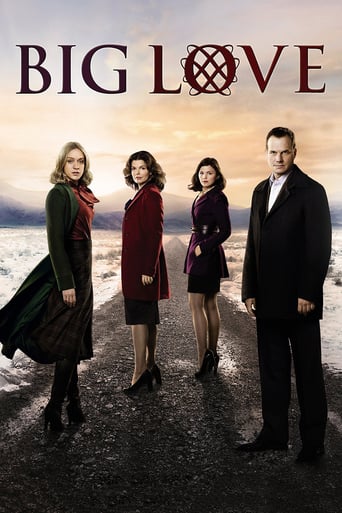
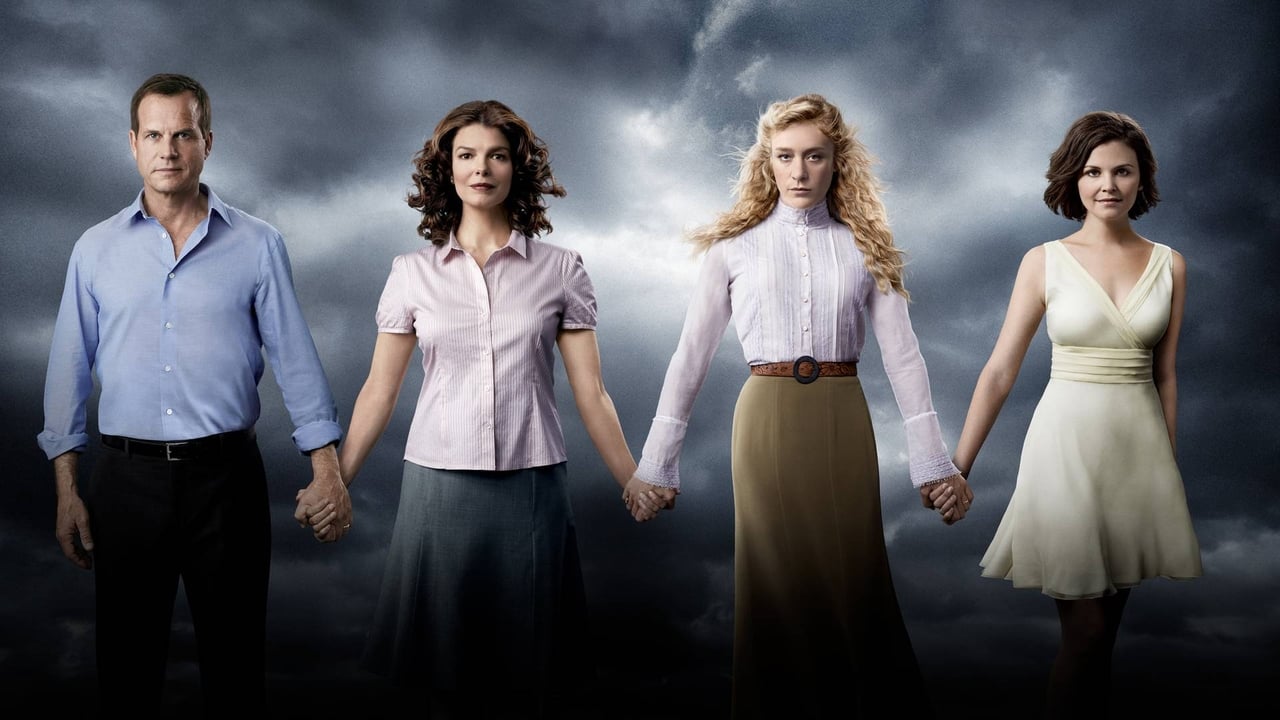
 AD
AD

